Live and On-Demand Briefings
Subscribers have access to monthly live briefings with E&E News reporters as they provide behind-the-scenes insight into critical news topics, along with an opportunity to get their questions answered. Recordings of recent events are available below.

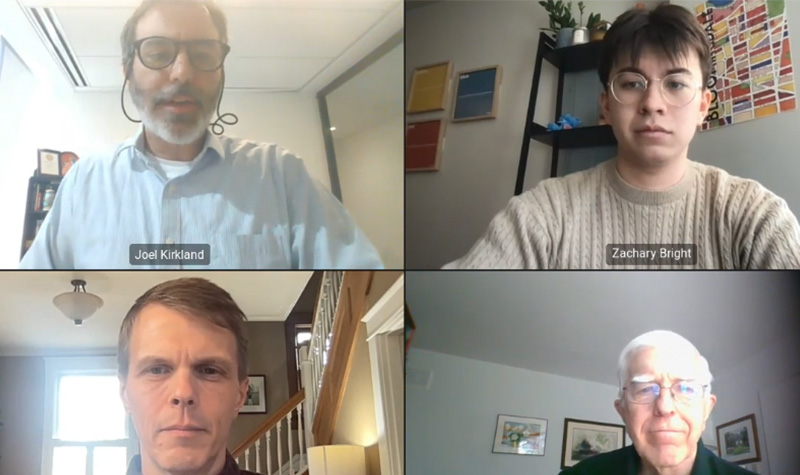
Powering Tomorrow: A 2024 Grid Outlook
February 21st, 2024 | AVAILABLE ON-DEMAND
Peter Behr, Joel Kirkland, Zachary Bright and Jeffrey Tomich
To meet ambitious climate goals, the U.S. will need to address transmission capacity and an aging grid infrastructure. The Biden Administration, through the 2021 infrastructure deal and the 2022 Inflation Reduction Act, has committed billions of dollars in investments to upgrading the grid and building out transmission networks, but permitting challenges and legal battles threaten to prolong any infrastructure build-out even further.
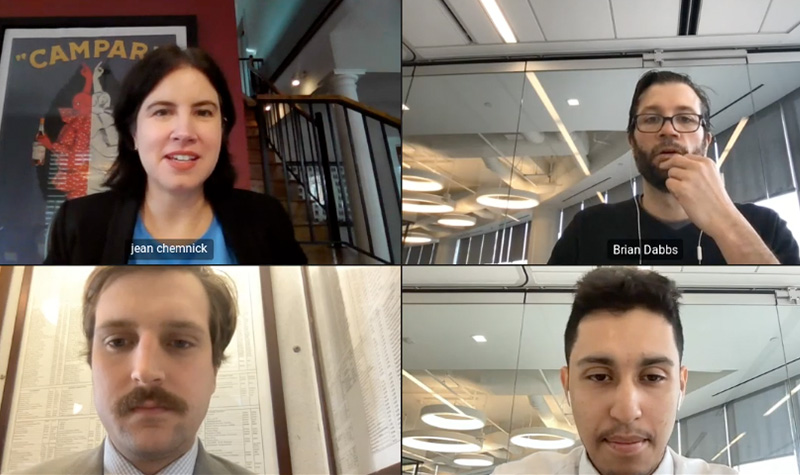
Exploring the Future of the Hydrogen Industry
January 23rd, 2024 | AVAILABLE ON-DEMAND
Christian Robles, Jean Chemnick, Brian Dabbs and Nico Portuondo
The Biden Administration and the Department of Energy are gearing up for an important year in clean energy regulation with a renewed focus on hydrogen production. The bipartisan infrastructure law provides $8 billion to help boost clean hydrogen and fortify the transition away from fossil fuels, but new guidance on the hydrogen tax credit sparked concern among producers.
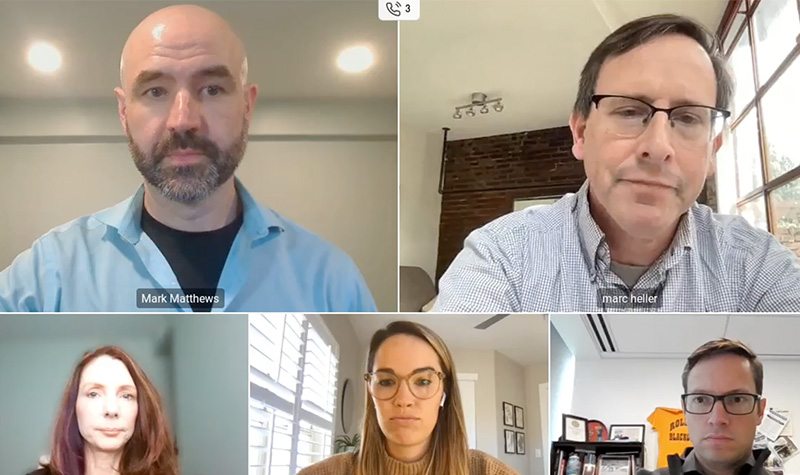
The New Carbon Economy
November 7th, 2023 | AVAILABLE ON-DEMAND
Marc Heller, Anne Mulkern and Corbin Hiar
Tracking and reducing carbon emissions has become a vital piece of corporate strategy recently and continues to grow in importance as the world seeks to slow climate change. As companies look to shore up zero emissions targets and comply with carbon regulations, there are many questions around ESG ratings, carbon offset standards and the data needed to implement these strategies.
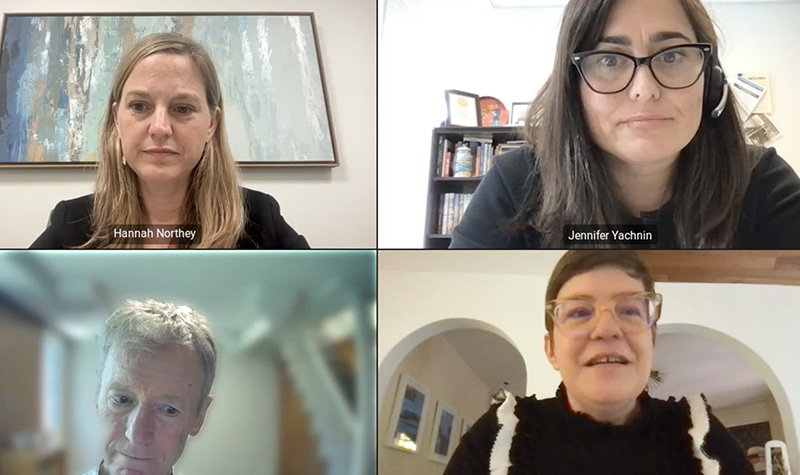
Celebrating 25 Years of E&E News: The Future of U.S. Energy
October 11th, 2023 | AVAILABLE ON-DEMAND
Amy Carlile, Hannah Northey, Michael Doyle, and others
What’s the future of U.S. energy? The answer may hinge on what happens on federal land. Once used heavily for hard-rock mining and oil production, large swaths of the West are now being eyed for solar, wind and geothermal projects; transmission corridors; carbon sequestration and mineral extraction for electric vehicle batteries and other low-emission technologies. While using federal tracts for renewable energy has great promise, there is conflict with efforts to protect endangered species and other natural resources.

Clearing the Air: What’s next for the carbon capture industry?
September 12th, 2023 | AVAILABLE ON-DEMAND
Jean Chemnick, Carlos Anchondo, Corbin Hiar and Mike Soraghan
Efforts to capture carbon pollution from smokestacks and the atmosphere have received strong support from Congress and the White House. Yet questions remain about the technology, economics, infrastructure and community support needed to scale up the carbon capture projects that the Biden administration is counting on to meet its climate goals. Will the legislative and regulatory incentives for carbon capture, pipelines and storage sites be enough to build a viable new industry?

Addressing Extreme Weather Emergencies
August 15, 2023 | AVAILABLE ON-DEMAND
Chelsea Harvey, Thomas Frank, and Ariel Wittenberg
From extreme heat and widespread drought to historic flooding and devastating wildfires, there is growing uncertainty around how to tackle everyday impacts of climate disasters. The increased frequency of back-to-back emergencies is taking a toll on the workers in certain industries and greatly impacting the overall economy. Join E&E News reporters Ariel Wittenberg, Tom Frank and Chelsea Harvey. They will discuss what the Biden Administration can do to address communities pummeled by the extreme heat, how the government can continue to finance the increasingly regular climate emergencies, and the outlook on extreme weather trends for the future.
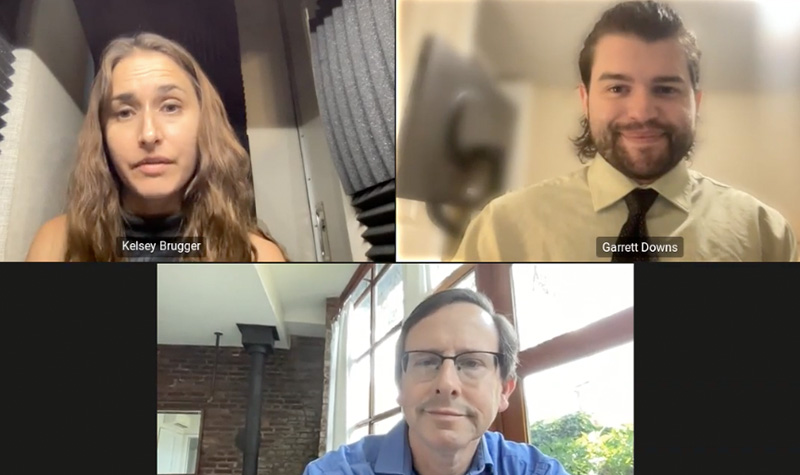
Farm Bill: The Negotiation Landscape
July 11, 2023 | AVAILABLE ON-DEMAND
Marc Heller, Kelsey Brugger, and Garrett Downs
The Farm Bill reauthorization process has been underway for months but the divide among the House Republican caucus could put the must-pass legislation in jeopardy. The Inflation Reduction Act passed last year infused billions of dollars into existing farm bill programs, but there have been concerns raised that the money should be allocated differently. Similar to the debt limit, another major sticking point will be the push for stricter work requirements under the SNAP program.
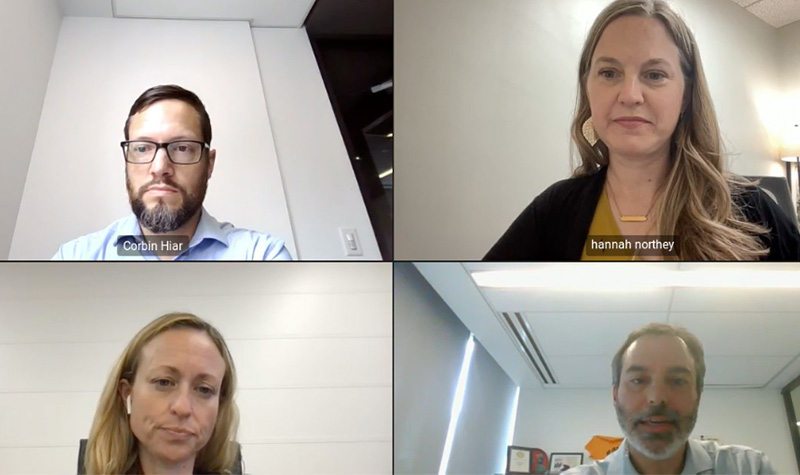
U.S.-China Battle in Energy & Tech
June 13, 2023 | AVAILABLE ON-DEMAND
Joel Kirkland, Corbin Hiar, Hannah Northey and Sara Schonhardt
U.S.-China political tensions are posing a growing threat to the fight against climate change. The battle for supremacy cuts across the energy and technology sectors, and it’s introducing friction into the already daunting task of moving away from fossil fuels. China controls much of supply chain for solar panels and battery technology, including critical minerals processing. As the U.S. tries to catch up, a lot has been made of efforts to cut ties with China and its suppliers. Will that affect the timeline for a U.S. energy transition? The Inflation Reduction Act poured money into building out the U.S. manufacturing base. And ‘Buy America’ requirements pose new hurdles for automakers and energy-tech companies. What permitting challenges lie ahead?
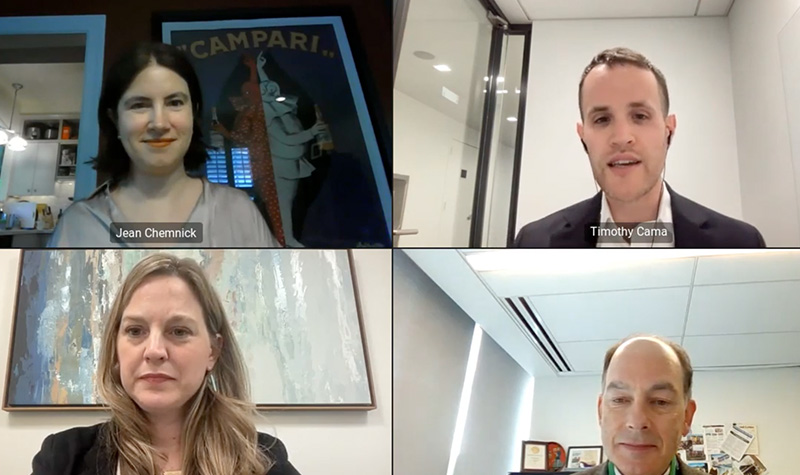
EPA Power Plans
May 16, 2023 | AVAILABLE ON-DEMAND
Jean Chemnick, Sean Reilly, Timothy Cama, Hannah Northey
The 2022 Inflation Reduction Act aimed hundreds of billions of dollars to fund clean energy projects, pollution controls and energy costs. To thread the transition needle, the EPA is getting aggressive on the regulation front. From new standards for power plant carbon dioxide emissions and a new national drinking water standard to regulations aimed at tailpipe emissions to limit smog and carbon from trucks and cars, proposals have been flooding since the start of 2023.

The Oil Dilemma
April 11, 2023 | AVAILABLE ON-DEMAND
Shelby Webb, Benjamin Storrow, Lesley Clark, and Jeremy Dillon
It is good to be an oil company these days. Spending on new offshore oil projects over the next two years is projected to soar to levels not seen in a decade and American oil and gas drillers are on track to set new pumping records. The Biden Administration made a controversial decision to support ConocoPhillips’ Willow oil project in Alaska and House Republicans’ energy bill includes provisions to increase U.S. oil production and ease permitting. But the latest IPCC’s climate assessment proclaims the world is far from hitting the emissions cuts needed to avoid the most catastrophic climate impacts and puts even greater pressure on oil companies to invest in renewable energy and other emission-cutting actions.

2023 Farm Bill: Headwinds and Windfalls
March 14, 2023 | AVAILABLE ON-DEMAND
Marc Heller, Adam Aton and Chelsea Harvey
The current Farm Bill – worth trillions in funding and support – expires in September. Much of the bill is under serious debate including regulations on the industry, how to help farmers manage natural disasters and take better care of their land, and how to encourage scientific advancements to produce food in more efficient ways that withstand and even reduce climate impacts. Climate change will be omnipresent in the discussions both in terms of its impact on the industry and agriculture’s impact on climate.
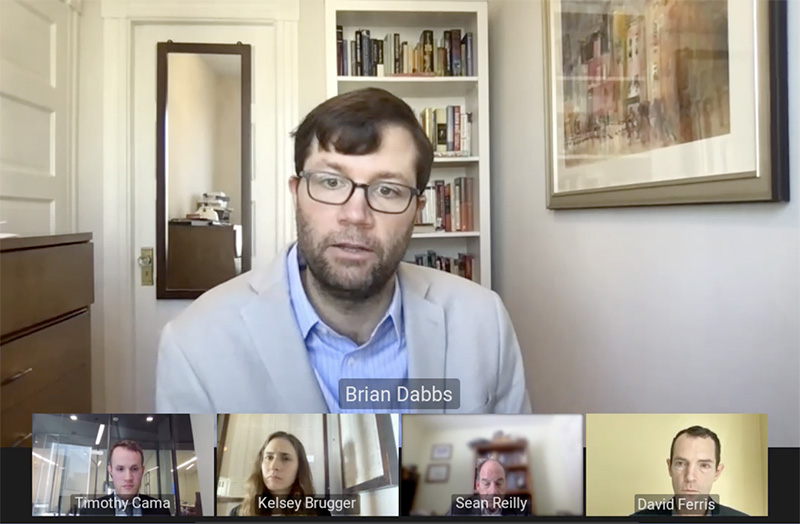
Implementing the Inflation Reduction Act
February 14, 2023 | AVAILABLE ON-DEMAND
Timothy Cama, Kelsey Brugger, Sean Reilly, David Ferris, and Brian Dabbs
Decisions made this year by federal agencies on the Inflation Reduction Act will determine the law’s impact on technology, industry, and emissions for decades to come. The landmark climate law included billions for electric vehicles tax credits, renewable energy investment tax credits, demonstration project funding, competitive grants, and more. The Treasury Department, U.S. EPA, Energy Department, and others have already announced some of these guidelines and are ready to tackle many more shortly. Members of the GOP are looking for ways to slow the agencies down and will scrutinize every decision. Join E&E News reporters to review what has been rolled out so far, what is to come, who are the key players and what stakeholders are on the lookout for.

Energy & Environment in the 118th Congress
January 18, 2023 | AVAILABLE ON-DEMAND
Manuel Quinones, Emma Dumain, Adam Aton, Jeremy Dillon, and Nico Portundo
Republicans have taken control of the House, vowing to contest Biden Administrations energy policies regarding fossil fuel production on public lands and climate disclosure rules for public companies. Senate Democrats said they aim to blunt the impact of the Republican actions and continue to push their climate and energy policy. Still, some lawmakers hope to find compromise in a divided Congress, including on infrastructure.
Listen to E&E News reporters as they look ahead to energy and environmental policy in the 118th Congress.
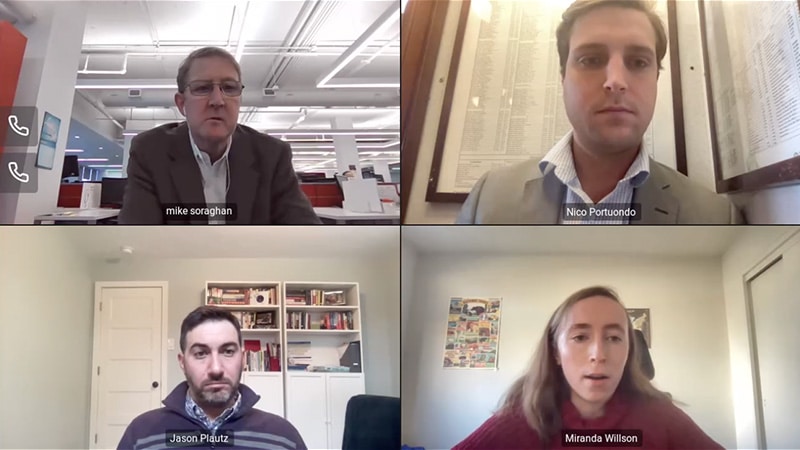
Energy Markets and Policies Outlook
December 13, 2022 | AVAILABLE ON-DEMAND
Mike Soraghan, Jason Plautz, Miranda Willson and Nico Portundo
Energy markets have seen a lot of volatility in 2022. How will federal and state policies and market conditions impact future supply and prices? Listen to E&E News reporters discuss key issues affecting the energy markets.
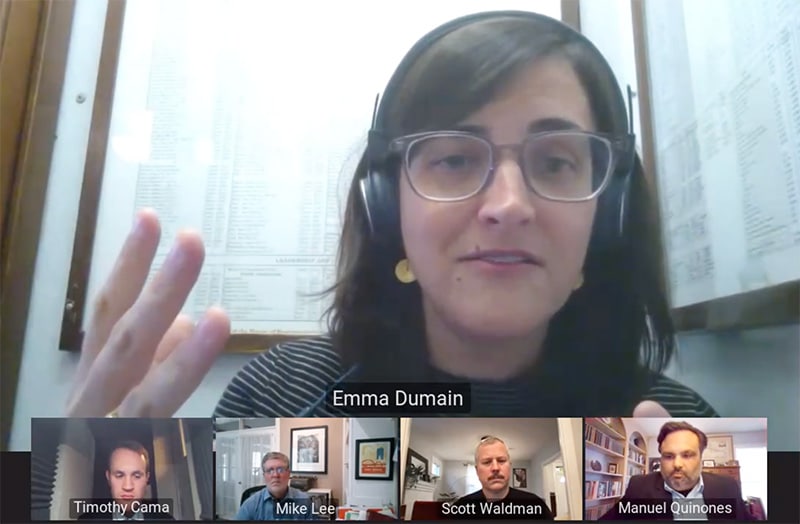
Midterm election impact on energy and environment policy
November 15, 2022 | AVAILABLE ON-DEMAND
Emma Dumain, Timothy Cama, Scott Waldman and Manuel Quiñones
The midterm elections will have a tremendous effect on the energy and environment policy agenda on a national, regional and local level. Billions of dollars have been spent in one of the most expensive campaign seasons yet, but what donors will see in return remains up in the air.

Electric vehicles: Express lane or road blocks ahead?
October 11, 2022 | AVAILABLE ON-DEMAND
David Ferris, Jael Holzman, Nick Sobczyk
Are electric vehicles finally headed for the express lane after billions of dollars in funding provided by Congress in the climate bill? E&E News reporters discuss the remaining roadblocks ahead.
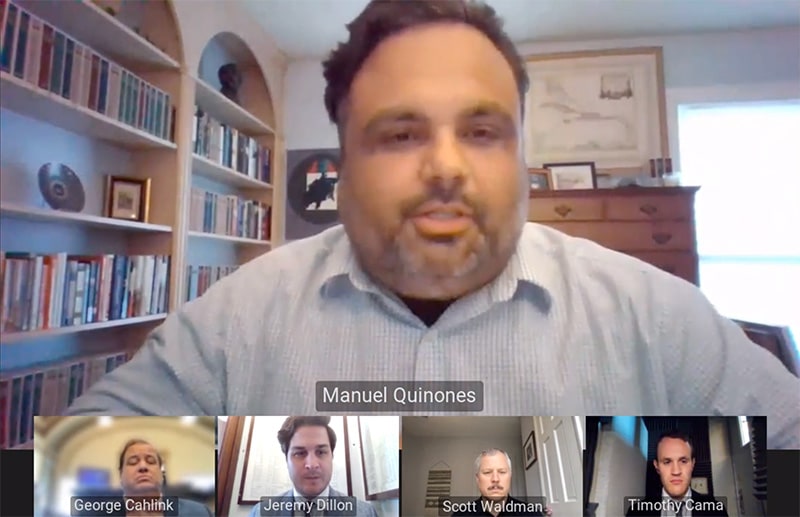
Congressional action for energy and environment policy this fall
September 14, 2022 | AVAILABLE ON-DEMAND
Timothy Cama, George Cahlink, Scott Waldman, Jeremy Dillon, and Manuel Quinones
Even with the passage of the Inflation Reduction Act, there is still a lot of possible Congressional action on climate and energy this fall. Agency budgets are still uncertain, and there are other outstanding promises negotiated as part of — or left out of — the IRA. But what can be done before the midterm elections and how will its outcome affect votes afterwards?
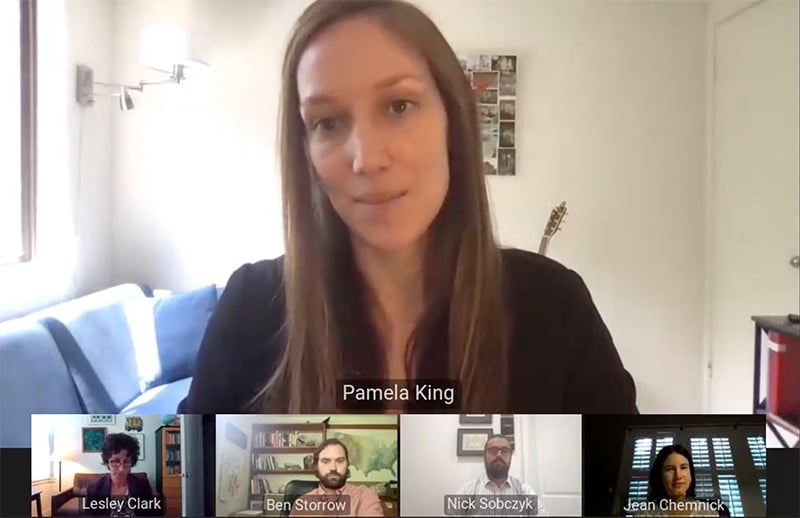
What’s next after the Supreme Court’s climate ruling?
August 9, 2022 | AVAILABLE ON-DEMAND
Nick Sobczyk, Jean Chemnick, Lesley Clark, Benjamin Storrow and Pamela King
The Supreme Court’s decision in West Virginia v. EPA last month limited EPA’s options for regulating power plant carbon emissions. Tough choices lie ahead for EPA and other federal agencies, as well as lawmakers that would like to see more regulations on greenhouse gas emissions. The opinion has emboldened critics of the Biden’s administration’s regulations and brightened the prospects of certain industries, particularly carbon capture and storage.
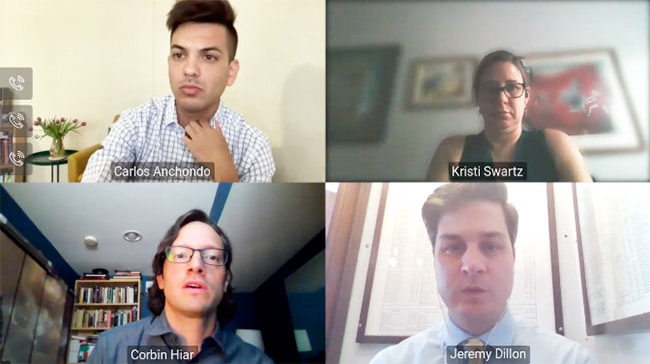
Carbon Capture and Storage: Breakthrough or Bust?
July 12, 2022 | AVAILABLE ON-DEMAND
Carlos Anchondo, Corbin Hiar, Jeremy Dillon and Kristi E. Swartz
An unprecedented amount of federal funding for carbon capture and storage (CCS) was in the $1 trillion bipartisan infrastructure bill President Joe Biden signed into law last year. Advocacy for expanded R&D and deployment of pricey technologies that can capture CO2 from smokestack emissions or suck CO2 from the air is heating up as some research notes we cannot solve climate change without it and keep the lights on. The opposition sees CCS as an unproven, lucrative excuse for fossil fuel companies to continue to build infrastructure into the system as the world turns to low-carbon solutions.
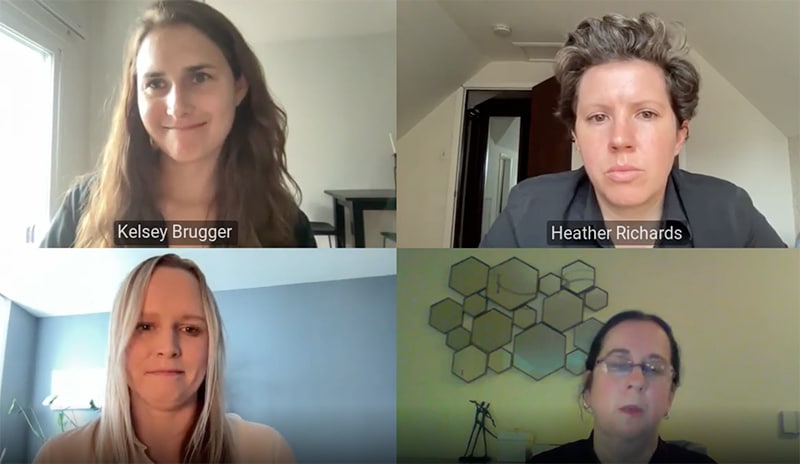
The National Environmental Policy Act (NEPA)
June 7, 2022 | AVAILABLE ON-DEMAND
Niina Farah, Heather Richards and Kelsey Brugger and Energywire Editor Christa Marshall
The National Environmental Policy Act (NEPA) holds the key to energy production and distribution projects and policies aimed at fighting climate change. The decades-old law faces significant action as energy and environmental advocates look to the courts to fight new projects after the Biden administration’s moves to restore changes made by the Trump administration, leaving significant new projects in flux.
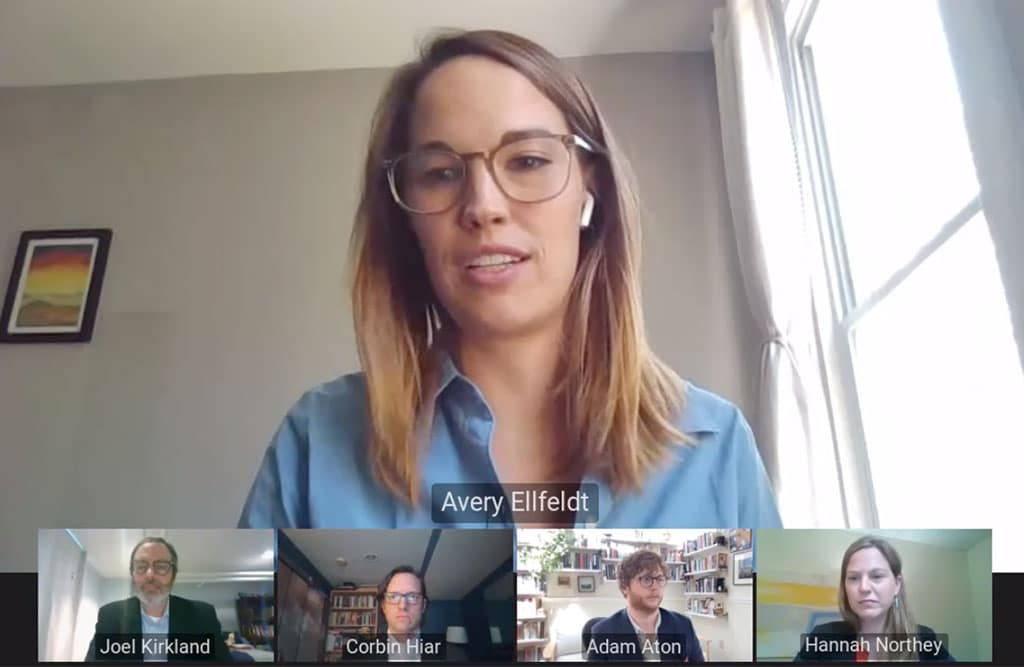
How ESG is shaping policy and business in 2022
May 10, 2022 | AVAILABLE ON-DEMAND
Avery Ellfeldt, Joel Kirkland, Corbin Hiar, Adam Aton and Hannah Northey
This year has already seen a lot of action on “Environmental, Social and Governance” investment from the proposed SEC climate disclosure rule to climate resolutions at six of the largest U.S. investment banks to a backlash from state lawmakers against ESG-based financial decisions. And shareholder activism is not limited to just climate change, as water pollution and use are also in activists’ crosshairs.

How the Supreme Court, Biden may shape energy and environmental law
April 12, 2022 | AVAILABLE ON-DEMAND
Erica Martinson, Lesley Clark, Niina H. Farah and Pamela King
President Joe Biden’s goals for climate change may be in the hands of the courts as Congress struggles to support his policies.
The Supreme Court is set to consider and issue decisions on multiple cases with the potential to reshape national environmental policy, along with welcoming a new justice this fall. Other energy and environmental cases, including climate liability and pipeline approvals, are working their way through the lower courts, where Biden has managed to nominate and seat dozens of judges, but they don’t yet stack up to the more than 230 federal judges President Donald Trump managed to install in his four years in office.

Russia’s Impact on Future Energy & Climate Policy
March 15, 2022 | AVAILABLE ON-DEMAND
Jael Holzman, Mike Lee, Sara Schonhardt, Christian Vasquez and Mark Matthews
Russia’s war on Ukraine has shone a bright light on Russia’s known role in oil and gas markets and cybersecurity. It has also revealed lesser-known dependencies within the clean energy supply chain and climate policies. What has been exposed, and how will that change future energy and climate policy action?

How Extreme Weather Is Shaping Federal & State Policies
February 15, 2022 | AVAILABLE ON-DEMAND
Laura Maggi, Edward Klump, Thomas Frank, Chelsea Harvey and Anne Mulkern
More frequent natural disasters and extreme weather are already costing billions of dollars and upending lives. And with climate change, they are only going to get worse. Lawmakers at the federal and state level are attempting to confront this new reality with changes to disaster funding and distribution, infrastructure planning, and regulations. But is it enough?

